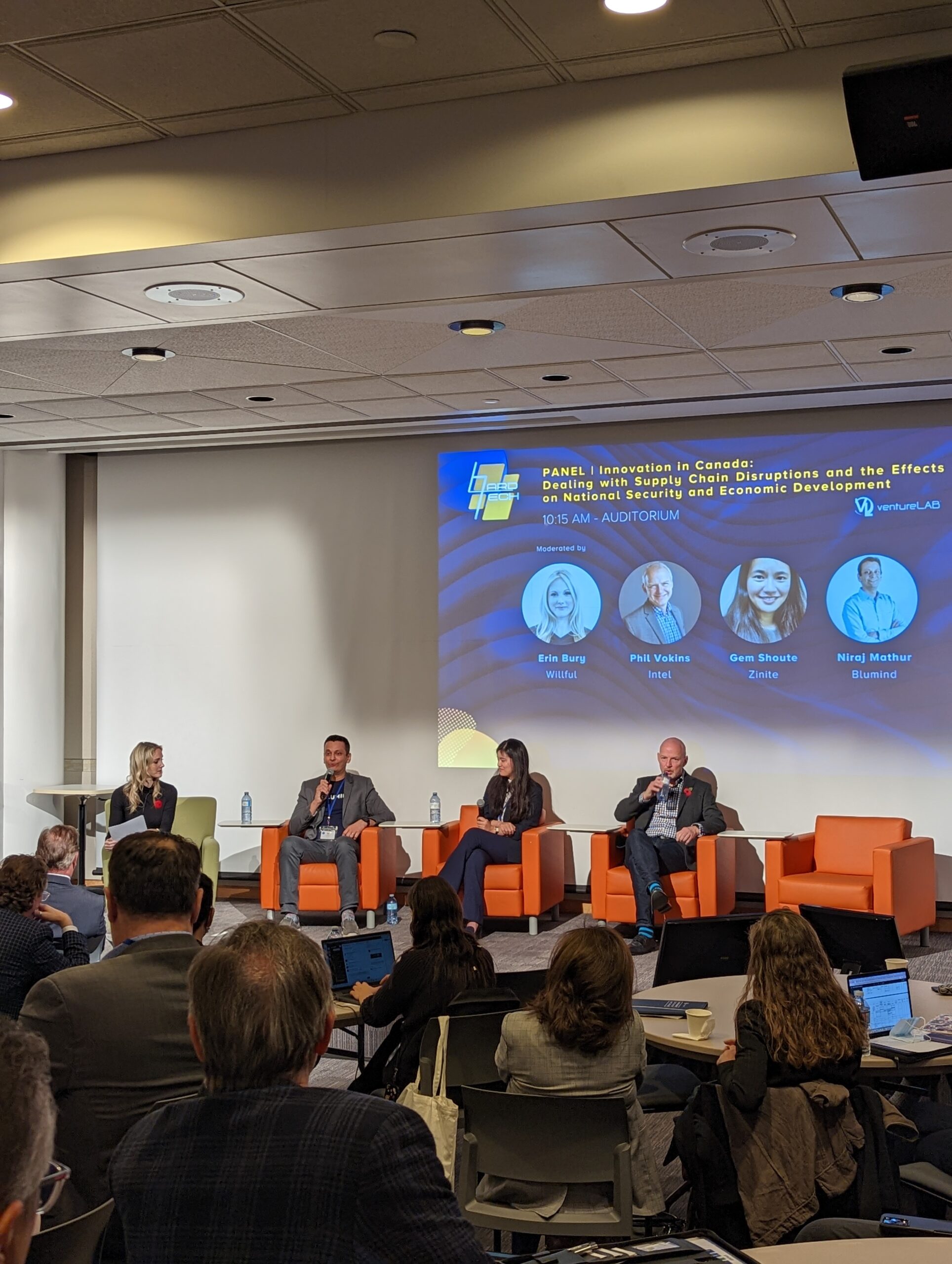
VentureLab’s HardTech brings together start-ups and government in the world of semiconductors and hardware
by Sadi Muktadir

The enduring theme was that regulatory policy and government was in the way, or at the very least, could do more to hasten the arrival of chip manufacturing in Canada.

VentureLab’s HardTech brings together start-ups and government in the world of semiconductors and hardware
On Nov. 9, the HardTech Conference kicked off in Markham, Ont., presented by VentureLab. This was HardTech’s first return to an in-person event, offered in a hybrid format now in 2022.
The hardware technology-focused conference brought together early stage start-ups with grant partners, business leaders and government representatives for a day of talks and strategy.
The key themes around the day included the challenges of attaining and retaining top-end talent, as well as developing a resilient supply chain for the critical materials needed to establish semiconductor manufacturing in Canada.
The event was kicked off by Moderator Erin Bury, the CEO of Willful, an estate planning software company, and words from Melissa Chee, CEO of VentureLab, as well as Frank Scarpitti, the Mayor of Markham, Ont.
Both of the themes of supply chain troubles and talent retention were brought up in the morning session, titled ‘Innovation in Canada’.
The panel brought together Intel representative, Phil Vokins, Director Channels, Alliances & Cloud, Gem Shoute, CEO of Zinite, and Niraj Mathur, CEO of Blumind. The three were asked about the state of innovation in Canada with regards to semiconductor manufacturing.
“As a process technology company, we deal with materials and tooling so high volume fabricators can manufacture. There are delays in getting raw materials that can convert precursor materials into components that can be used in a semiconductor. I know these are struggles that end consumers like automotive companies have in getting chips,” said Gem Shoute, CEO of Zinite.
“We’re also facing bottlenecks that are preventing us from proceeding with our technology. The biggest gatekeepers are tool vendors, and R&D fabrication companies, that create barriers to start-ups to enter the space to be able to scale up,” she said.
Blumind’s CEO Niraj Mathur, added onto this, saying “In our industry, there’s a lot of changes happening as the global economy evolves that affects supply chain issues, and the other factor that affected supply chain issues was COVID-19, which means there’s now a lag in the correction as supply chains catch up. We went through COVID-19, which was an anomaly, but how different is this from the regular economy?”
Gem Shoute pushed back a little against the diagnosis that COVID-19 was an anomaly, citing that “The chip shortage actually started before COVID-19. Perhaps it was exacerbated by COVID-19, but I don’t believe it’s a black swan event. El Niños are supposed to be rare events, but we’re seeing more of these events, and I see events like COVID-19 happening more frequently, so I’m wondering if our supply chains are resilient enough to tolerate these events happening more frequently, and whether we want to overcorrect them or not.”
Phil Vokins, the representative of Intel, was asked if COVID-19 could be blamed for supply chain issues in the world of semiconductors, and said, “The predictability is no longer easy to determine, events like COVID-19, and the war in Eastern Europe will have an effect on supply chains, and we can’t forecast ten years in advance anymore. The demand however, for semiconductors, has increased, and that will not go away.”
The enduring theme was that regulatory policy and government was in the way, or at the very least, could do more to hasten the arrival of chip manufacturing in Canada.
Intel’s recent investments in Ohio and Mexico were a key talking point for Phil Vokins, who mentioned that more semiconductor and hardware manufacturing “starts with government, and starts with policy” when queried about what Canada has to do to build its nascent industry.
Gem mentioned that government support, and policy support doesn’t refer to matching funds, but rather aligning policy interests with what the semiconductor companies need, such as reducing the time to receive permits, or helping to source and transport key technologies.
The conference also featured a pitch competition, with eight companies duking it out for $50,000 in funding, and a conference in the afternoon delving into medical device manufacturing and the landscape for burgeoning tech start-ups.
The in-person event was HardTech’s first return to the format, and proved to be a key success as many people were spotted networking over tables as they discussed where the industry was headed next.